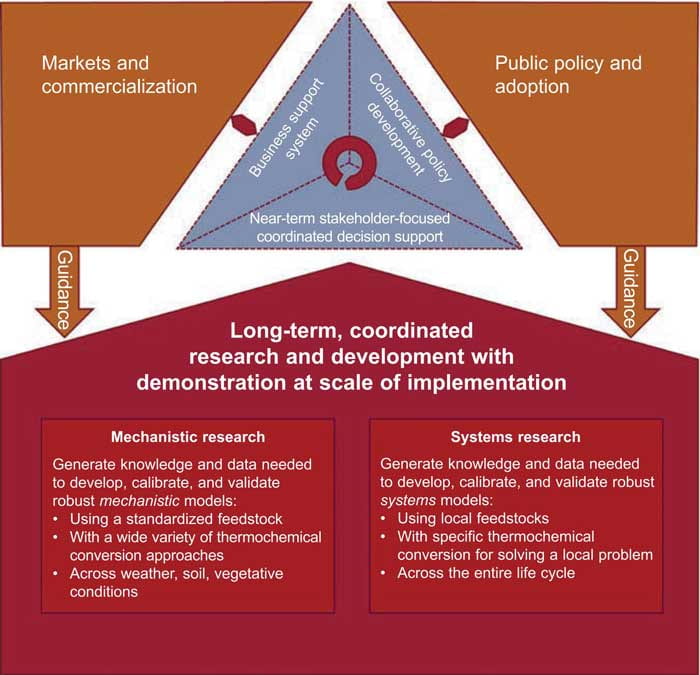
Overview of development pathway for biochar technology. View high-resolution image.
Researchers outline ambitious research program in a recent viewpoint article in the Journal of Soil and Water Conservation, “Integrated biochar research: A roadmap.”
James E. Amonette, Humberto Blanco-Canqui, Chuck Hassebrook, David A. Laird, Rattan Lal, Johannes Lehmann and Deborah Page-Dumroese explore benefits and propose a path forward for biochar.
Investment in a long-term research program is estimated to cost $150 million annually and is expected to resolve most questions within a decade, followed by a decrease in the funding levels needed to maintain some long-term experiments. The effort looks to develop best approaches for making and using biochar.
Biochar is an organic substance, almost like charcoal, that’s made by heating organic matter in the absence of oxygen. Johannes Lehmann at Cornell has done extensive research on biochar and is an expert on its production. Watch our researcher highlight with Johannes Lehmann to learn more.
According to the article, some of the benefits of deploying biochar-based technologies include:
- Ability to sequester carbon
- Enhanced vegetative productivity
- Diminished emissions of nitrous oxide (N2O)
- Combatting land degradation
- Improved soil health
- Reduced nutrient leaching
- Increased water storage
- Improved livestock health and productivity
- Enhanced food security
- Decreasing risk of wildfire (thereby improving forest health, air quality, and human health)
The article concludes:
“The time to define and implement solutions to address the peril of climate change is now. We believe that investment in this integrated long-term research program would, within a decade, resolve the most important information needs with respect to the technology for biochar and bioenergy production and the agronomic and environmental impacts of biochar use. This information is critically needed by both private and governmental decision makers to ensure that deployment will yield the maximum productivity, economic, and environmental benefits. Biochar and integrated biochar-bioenergy production systems have the potential to become a robust distributed industry supporting rural economies and an important part of a broader portfolio of solutions to climate change. All will be needed to meet the challenge.”